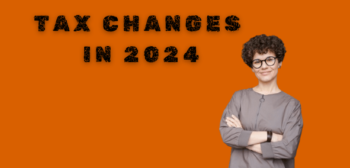Canada’s 2024 tax landscape introduces several updates affecting both individuals and businesses. Here are some key changes:
Personal Income Tax Brackets and Basic Personal Amount: Federal tax brackets have been adjusted to account for inflation, allowing a modest increase in income thresholds in each bracket. The Basic Personal Amount, which is the tax-free income threshold, also increased to $15,706, up from $15,000 from 2023. For many salaried people, it means a bit more income is kept in lower tax brackets.
Capital gain inclusion rate: Budget 2024 announced an increase in the capital gains inclusion rate from one half to two thirds for corporations and trusts, and from one half to two thirds on the portion of capital gains realized in the year that exceed $250,000 for individuals, for capital gains realized on or after June 25, 2024.
Alternative Minimum Tax: Higher-income Canadians face adjustments to the Alternative Minimum Tax, which now includes a 20% minimum tax rate and a higher exemption threshold of $173,205. This change is intended to ensure that wealthier taxpayers pay a fair share by limiting the effects of certain credits and deductions.However, many taxpayers may be exposed to this tax due to transaction that triggering significant capital gain in one particular year.
Canada Pension Plan (CPP) and Employment Insurance (EI): CPP contribution limits increased, with the new maximum pensionable earnings set at $68,500, and an added “CPP 2.0” component. Those should have reflected taxpayers’ pay slips already. EI premiums also increase slightly.
First Home Savings Account (FHSA): This new account type continues into 2024 with an $8,000 annual contribution limit and a lifetime maximum of $40,000. Like RRSPs, contributions are tax-deductible, and withdrawals remain tax-free if used for a first home purchase, providing further support for first-time homebuyers.
Your content goes here. Edit or remove this text inline or in the module Content settings. You can also style every aspect of this content in the module Design settings and even apply custom CSS to this text in the module Advanced settings.
Increased Limits for TFSAs and RRSPs: Indexed by inflation, the Tax-Free Savings Account (TFSA) contribution limit increases to $7,000, and the Registered Retirement Savings Plan (RRSP) cap reached $31,560, helping Canadians save more tax-efficiently for the future, if you still have enough cash for the contribution.
Corporate Share Buyback Tax: In Canada, as announced in the 2023 federal budget on March 28, 2023, the “Tax on repurchases of equity” is a corporate-level 2% tax that would apply on the net value of shares repurchased by any corporation resident in Canada.
These changes aim to adapt the tax framework to inflation and economic challenges, with various adjustments that are expected to address income inequality, encourage investment, and support retirement savings.

Recent Comments